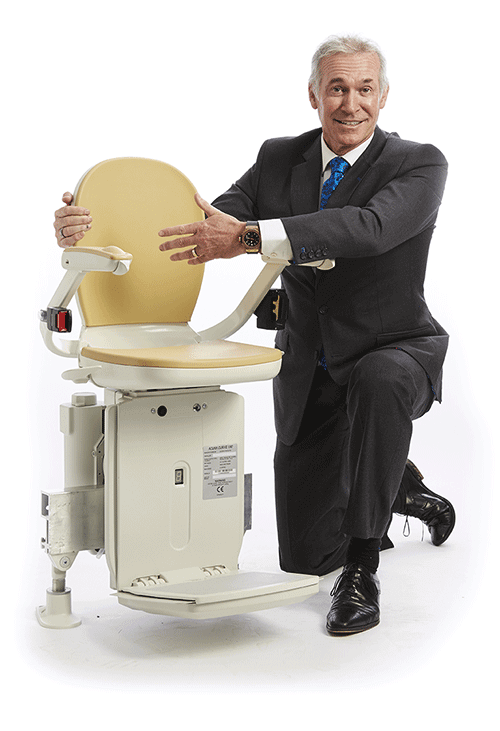It’s overwhelming for anyone to keep up with their busy schedules—From remembering multiple doctors' appointments to long, detailed grocery lists, to last-minute plans with friends—However, for people living with dementia or suffering from some form of memory loss, it is that much more difficult.
With more than 55 million people worldwide who have dementia, this disease is a prominent phenomenon screaming to be better understood and more appropriately addressed, not only in our families and communities, but on a global scale.
While living with dementia presents unique challenges—both for the individual affected and their caregivers—, there are numerous strategies and approaches that can significantly improve their daily lives, as well as their overall well-being.
From fostering a supportive environment to implementing structured routines, these techniques aim to empower both individuals with dementia and their caregivers to navigate this journey with greater ease and dignity.
Read on as we explore seven simple, practical ways to make each day easier and more comfortable for people living with dementia.
Daily Tips for People Dealing with Dementia
1. Keep Your Life Rooted in Routines
Individuals with dementia often experience memory loss and confusion, which can lead to feelings of disorientation and anxiety.
However, routine can combat this confusion by providing a predictable structure and familiarity in their daily lives, which can help them feel more secure and reduce stress.
Knowing what to expect and following a consistent schedule can provide a sense of comfort and stability to someone who is constantly overwhelmed with anxiety and confusion.
Furthermore, routines can also help individuals with dementia maintain a better sense of time, place, and purpose. Following a regular schedule allows them to understand the sequence of activities and makes it easier for them to engage in daily tasks, improving their ability to orient themselves within their environment.
From an emotional standpoint, following a routine can also help minimise behavioural issues associated with dementia, such as agitation, restlessness, or resistance to care.
By providing a predictable and structured environment, individuals with dementia may feel more settled and less likely to experience disruptive behaviours triggered by confusion or uncertainty.
2. Stay Organised Overall
Anyone’s memory can suffer in a chaotic, disorganised environment.
This is why it is crucial for anyone, but especially people with memory disorders, to stay organised in their lives and homes.
Staying organised significantly helps with memory, as it limits distractions and keeps your thoughts, plans, and possessions in order. Some simple things that you can do to stay organised include:
- Placing everyday items such as keys and wallets consistently in the same spot (preferably in a place that you walk by frequently)
- Writing down important things that you want to remember
- Using organisers to keep track of your stuff such as pill boxes, binders, and folders
- Keeping to-do lists and crossing off the items that you complete
- Placing calendars and clocks around your home as a constant reminder of what time it is
- Limiting distractions that can make you lose focus on the task at hand
- Maintaining a schedule
3. Get a Notebook to Keep Track of Everything
Keeping a notebook that is solely dedicated to tracking daily activities and important information can be invaluable for individuals living with dementia, as it serves as a tangible aid for memory recall and navigating the nuances of daily life.
While ensuring that you write down appointments, reminders, and significant details, such as names, dates, and places, is an integral practice for coping with the challenges of dementia, if you are writing this information down on random, scattered scraps of paper that get lost or misplaced, all of this writing work goes to waste.
By investing in a designated notebook in which all of your information is confined to one place, you are setting yourself up for success with a reliable and organised resource that is easy to locate.
This simple practice not only fosters independence but also provides a sense of security and empowerment for those navigating memory challenges.
The notebook becomes a dependable companion, offering reassurance and organisation in the midst of cognitive fluctuations, ultimately enhancing quality of life for individuals who struggle with memory.
4. Scatter Sticky Notes Around Your Home in Plain View
How many times have you left the comfort of your couch, confidently setting out on what was a once-important mission, only to forget what you were doing as soon as you entered the next room?
This is just one example of why strategically placing sticky notes around the home can be an effective way to remember important tasks and information for people living with dementia.
These notes act as gentle reminders for daily routines that can often be overlooked or forgotten, such as taking medications or completing household chores.
By placing them in plain view, such as on the refrigerator or bathroom mirror, they serve as constant visual cues, aiding in memory retention and reducing the likelihood of forgetting.
This simple yet practical approach promotes independence and confidence in individuals with dementia, allowing them to navigate their daily lives with greater ease and autonomy.
5. Take Advantage of Technology
We live in an amazing time of technology, so take advantage of it—From smartphone apps to specialised devices, there are various tools and resources that you can use to make your life a little bit easier every day.
For example, reminder apps can send notifications for appointments, medication schedules, and other important tasks.
Voice-activated assistants like smart speakers can provide verbal prompts and answers to queries, enhancing accessibility and reducing cognitive load.
GPS trackers can offer security and peace of mind by guiding drivers with dementia to their destinations and helping caregivers locate loved ones if they wander.
Embracing technology in this way not only aids memory retention but also promotes independence and safety, ultimately improving the overall well-being of individuals living with dementia and their caregivers.
6. Don’t Forget to Work Out Your Brain with Mental Exercises
One way to make everyday life easier when dealing with dementia is to strengthen your mental capacities.
From fun puzzles to memory exercises, there are plenty of ways to stimulate your mind every day and improve your memory and cognitive functioning.
However, it is important to remember to take breaks in between these exercises to allow your mind to rest and process the information.
Most importantly, try to practise patience with yourself and avoid getting frustrated, as this can only make it harder to retain new information and skills, ultimately hindering your progress.
It may take some time to see the results you’re hoping for but keep at it—You can do it.
Click here to see some fun exercises you can try to start stimulating your brain.
7. Ask for Help When You Need It
As much as we may want to assert our autonomy over all areas of our lives, no one can do everything alone—The importance of your health and safety far outweighs the satisfaction of barely scraping by.
Don’t hesitate to ask for help when you need it.
The friends and loved ones in our lives are there for us to lean on in times of need and support us when we need them most. They love you, and more than anything, they just want to see you healthy and happy.

